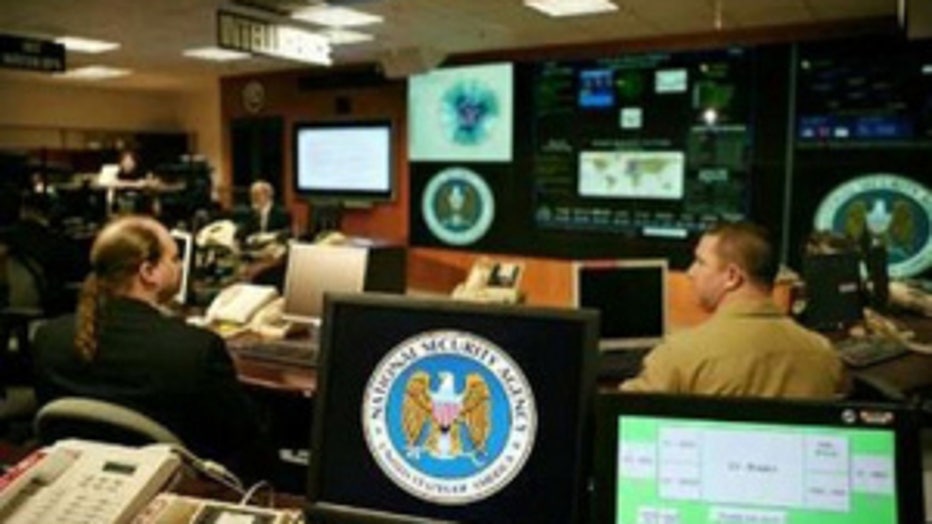Collection of Americans' phone records stirs debate: Valuable tool or 'beyond Orwellian'?
[trib_ndn vid=24867048 site_section=dash]
WASHINGTON (CNN) -- Frightening government overreach or valuable law enforcement tool?

That's the question politicians in Washington, and millions of citizens around the United States, asked on Thursday due to an explosive report suggesting that the government has been collecting millions of Americans' phone records.
FBI Direct Robert Mueller will be asked about the matter -- revealed after a British newspaper, the Guardian, published a Foreign Intelligence Surveillance Act (FISA) court order that applied to phone data from Verizon -- when he appears next week before the House Judiciary Committee. The panel's chairman Bob Goodlatte, R-Virginia, issued a statement Thursday saying he was "very concerned that the Department of Justice may have abused the intent of the law, and we will investigate."
The report will also be the subject of an upcoming classified briefing by Attorney General Eric Holder to the Senate Appropriations Committee. Its chairman, Sen. Barbara Mikulski, is calling for a similar closed-door briefing for the entire U.S. Senate.
When she read the news Thursday morning, the Maryland Democrat said, "It was like, 'Oh, God, not one more thing ... where we're trying to protect America and then it looks like we're spying.'"
Not everyone in the nation's capital is outraged -- with some saying the real travesty would be if the program, which they describe as valuable, was halted.
Reps. Mike Rogers and Dutch Ruppersberger, the two top Republicans on the House Intelligence Committee, said at least one terrorist attack domestically has been stopped in recent years because of the program. They both stressed that "this important collection tool does not allow the government to eavesdrop" and that it is routinely reviewed by Congress.
The order published by the Guardian is a "three-month renewal of what has been the case for the past seven years," explained Sen. Dianne Feinstein -- so that while the uproar may be new, the program is not.
"This renewal is carried out by the FISA court under the business records section of the Patriot Act," said the California Democrat. "Therefore, it is lawful. It has been briefed by Congress."
An author of the Patriot Act disagrees. Rep. James Sensenbrenner said he is "extremely disturbed by what appears to be an overbroad interpretation of the act."
"These reports are deeply concerning and raise questions about whether our constitutional rights are secure," the Wisconsin Republican wrote in a letter to Holder.
In 2006, it was reported the National Security Agency was secretly collecting telephone records in an effort to root out terror plots.
"Verizon's wireless and wireline companies did not provide to NSA customer records or call data, local or otherwise," the company said at the time.
Like the FBI and the NSA, Verizon declined comment to the media Thursday on the Guardian report. But company Vice President Randy Milch, in a note to employees, did say the newspaper's story may spur the company to respond in defiance of a promise of secrecy.
The newspaper published the four-page, top-secret government order requiring "originating and terminating" phone numbers plus the location, time and duration of calls from the communications giant. It lets the FBI and NSA to obtain the records from April 25 to July 19.
The order applies to Verizon Business Network Services, an operation not described on the company's website. Its scope was not immediately clear, though the Guardian claimed "millions of U.S. customers of Verizon" were affected by the collection of information "regardless of whether they are suspected of wrongdoing."
In his letter to Verizon employees, Milch said that his company would not provide the contents of any communications "or the name, address or financial information of a subscriber or customer."
An Obama administration official said any such order would relate "exclusively to metadata, such as a telephone number or the length of a call."
This kind of information "allows counterterrorism personnel to discover whether known or suspected terrorists have been in contact with other persons who may be engaged in terrorist activities," the unnamed official said in a statement to media.
Controversy over the Guardian report comes as the White House fends off privacy complaints on other fronts as well. The administration is under fire following revelations the Justice Department seized two months of phone records from Associated Press reporters and editors -- something done as part of an investigation into leaks of classified information.
Plus, The Washington Post and the Guardian reported that U.S. intelligence has a broad secret data mining program that allows access to central servers of nine leading U.S. Internet companies -- among them Microsoft, Yahoo, Google, Facebook and Apple -- to extract e-mail, photos and other private consumer communications.
The American Civil Liberties Union called it "beyond Orwellian (in allowing) basic democratic rights (to be) surrendered in secret to the demands of unaccountable intelligence agencies."
The Center for Constitutional Rights blasted it as "the broadest surveillance order to ever had been issued: It requires no level of suspicion."
Many in President Barack Obama's own party spoke forcefully against it as well.
Three Democratic representatives -- John Conyers of Michigan, Jerrold Nadler of New York and Robert Scott of Virginia -- said the program is "highly problematic and reveals serious flaws in the scope and application of the" Patriot Act.
"(The revelations) confirm our fears -- that the law would be distorted to allow for ongoing, indiscriminate collection of data," they wrote.
Sen. Mark Udall, who serves on the Senate Intelligence Committee, described the program as "the kind of government overreach I've said Americans would find shocking."
One of them: former Vice President Al Gore.
"Is it just me, or is secret blanket surveillance obscenely outrageous?" the 2000 Democratic presidential nominee wrote on Twitter.

